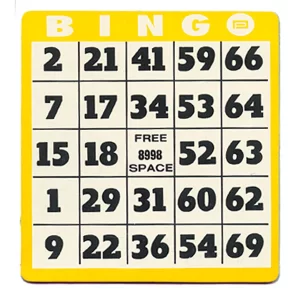The Rise of Skill-Based Gambling and Its Future in the Casino Industry

Skill-based gambling has revolutionized the casino industry. Skill-based games draw younger players while providing dispensable income. Unlike traditional machines, these new ones require players to use their logical thinking and devise strategies in order to play successfully.
Skill-based gambling on mobile phones promises an enriching experience for gamers while increasing revenue for casinos.
Game design
Gaming can be an enjoyable form of recreation and relaxation, providing hours of distraction or helping you unwind from an exhausting day. Gambling games typically do not involve real money unless playing tournaments; skill-based games require logic and mastering your abilities, offering exciting challenges to many players who become famous for their skills and dedication.
Some games rely purely on chance while others combine skill and luck. To determine whether a game constitutes gambling, regulators employ several tests – among them being “any chance”, which means any chance could result in either victory or defeat.
Millennials have an affinity for skill-based games. Raised playing arcade and mobile app titles, they enjoy these challenging yet thrilling titles for their challenge and excitement. Unfortunately, however, these do not appeal to traditional slot machine gamblers; yet these skill games are an excellent way to attract younger audiences and bolster casino revenues.
Regulations
As skill-based games gain in popularity, casino operators are considering adding them to their floors. While not seen as a replacement for traditional slots, skill-based games may make up five to ten percent of total floor space and could attract younger gamblers and increase revenue.
Regulators are currently undertaking an effort to determine whether games of skill qualify as gambling. This can be a complex endeavor as gambling definitions vary across jurisdictions; additionally, hybrid games between skill and chance make categorizing which qualify as gambling difficult.
Skill slot machines share many similarities with arcade and mobile app games, and are likely to appeal to millennials who grew up using technology rapidly. As such, casinos that are struggling to retain young patrons might consider offering these skill slot machines; however, strict compliance measures and payment processing guidelines must be observed with these new games.
Payment options
Skill-based casino games allow gamblers to control the outcome of competition more directly, by studying a method chart and understanding mathematical probabilities for every choice made during gaming. This helps lower house edges while making more profitable decisions; and provides an extremely satisfying sense of achievement over just winning money from games of chance alone.
Skill-based casino games are an effective way for casinos to attract new patrons and increase revenue, offering a unique gaming experience and appealing more directly to younger generations of gamers than other forms of casino entertainment. Furthermore, these skill-based games often result in lower house edges for casinos than conventional table games do.
Skill-based gamblers have many payment options available to them, including credit cards. Casinos offering these kinds of games must take great care to comply with and implement security measures in order to safeguard player privacy and adhere to stringent partner/industry guidelines when handling financial transactions.
Customer service
Skill-based games require both physical and mental abilities to determine their outcomes. They often don’t involve gambling or chance, and can even generate profits. Perhaps the most widely known skill-based game is poker, which demands high levels of skill and strategy; some professionals even make careers out of playing this form of gambling. To win at these skill-based games, players must learn how to read other players’ actions accurately while taking advantage of their strengths.
Skill-based gaming in casinos does not mean the end of traditional slot machines; in fact, casinos are increasingly turning to skill-based games to bring younger patrons who grew up playing video games into their fold. This trend is becoming especially important as baby boomers reach retirement age and casino attendance decreases significantly. Unfortunately, these new games present specific payment processing difficulties: banks label them gambling, making acquiring banks difficult for payment processing, while merchant category codes (MCC) remain unclear, leading to confusion over legal standing and regulation issues.








